Construction accounting involves specialized financial management techniques tailored for the construction industry. These techniques focus on tracking project costs, revenues, and overall financial performance.
One of the main challenges faced by construction companies is effectively managing both their finances and their projects. This difficulty arises from the complexity of coordinating among multiple stakeholders while complying with regulations.
A key benefit of a construction accounting software is its integration with project management tools, which helps ensure compliance with industry regulations. These solutions enhance efficiency and accuracy and provide real-time financial insights.
We have researched and listed the best construction accounting software to help businesses find the right solution. Our focus was on features such as industry focus, integration capabilities and user-friendliness.
- Premier – All-in-One to Gain Financial Visibility
- Procore – To Manage Invoices and Payments
- Foundation – Integrated Payroll
- Buildertrend – Best to Manage Cash Flow and Budgets
- CMiC – For Small Builders and Contractors
- Intuit Quickbooks – Best for Value
- FreshBooks – For Small Businesses
- Deltek – Inbuilt Job Costing, Payroll and Project Management
- Sage Construction – Market Leader
- Acumatica – AI-powered Cloud ERP
- Show less
You can trust Geekflare
Imagine the satisfaction of finding just what you needed. We understand that feeling, too, so we go to great lengths to evaluate freemium, subscribe to the premium plan if required, have a cup of coffee, and test the products to provide unbiased reviews! While we may earn affiliate commissions, our primary focus remains steadfast: delivering unbiased editorial insights, and in-depth reviews. See how we test.

Premier
All-in-One to Gain Financial Visibility
- Industry FocusConstruction-specific
- Integration CapabilitiesExtensive, ERP systems
- User-FriendlinessModerate learning curve
About Premier
Founded with a commitment to revolutionizing construction management, Premier is trusted by thousands of companies worldwide, ensuring they stay ahead in the competitive construction industry.
Premier offers an all-in-one platform that guarantees financial control, operational excellence, and seamless collaboration, connecting every process and stakeholder within a project.
Their cloud-based solution combines sophistication with simplicity, offering predictive intelligence, customizable dashboards, AI-driven automation, and support for unlimited entities.
Premier Features
Automates repetitive tasks with AI to focus on driving new business value.
Offers tools for managing and sharing construction drawings.
Handles unlimited entities and projects with streamlined financial grouping and automated inter-company transactions.
AI-powered modules provide predictive, intelligent reporting and forecast projects to enhance decision-making agility.
Offers a search tool that scans through the entire database and documents instantly, providing precise and quick access to needed information.
Extracts and organizes key data from contracts, invoices, and receipts, reducing manual entry and the potential for errors.
Premier Pros/Cons
Simplifies bank reconciliation by automatically recognizing and matching transactions
30-day money-back guarantee
New features published every week
Generates and routes accounts payable invoices for approval, modification, or rejection, enhancing the efficiency and accuracy of subcontractor payment cycles.
The constant release of new features can represent a long learning curve for users
Expensive for small to medium-sized businesses, both in terms of initial purchase and ongoing support costs.
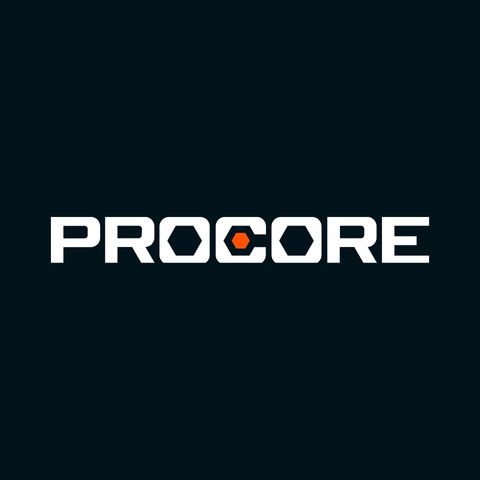
Procore
To Manage Invoices and Payments
- Industry FocusConstruction-specific
- Integration CapabilitiesERP, CRM, Payroll
- User-FriendlinessIntuitive, Beginner-friendly
About Procore
Founded in 2002, Procore has over 20 years experience in innovation to improve the lives of everyone in the construction industry. By providing a global platform that links the entire industry, it aims to revolutionize how construction projects are managed and executed.
Designed by experts who are passionate about construction, the platform caters to the specific needs of owners, general contractors, specialty contractors, and public agencies. It helps manage risk, secure data, and drive productivity across all project phases.
Trusted by users in over 150 countries, it connects every stakeholder in the construction process, ensuring projects are completed efficiently and safely.
Procore Features
Applies uniform processes across a portfolio of projects to reduce variability and increase efficiency.
Centralizes communications between office staff, field teams, and trade partners.
Utilizes mobile tools for faster approval processes and accurate on-site communication.
Equipped with real-time tracking of governance and compliance.
Facilitating on-the-go approvals and updates with their intuitive mobile interface.
Procore Pros/Cons
Integrates estimating, accounting, and project management solutions.
Centralizes financial information and processes.
Modern UI/UX Design.
More tailored for larger projects
High price if you do not have a regular flow of projects
Difficult to integrate if working with traditional vendors
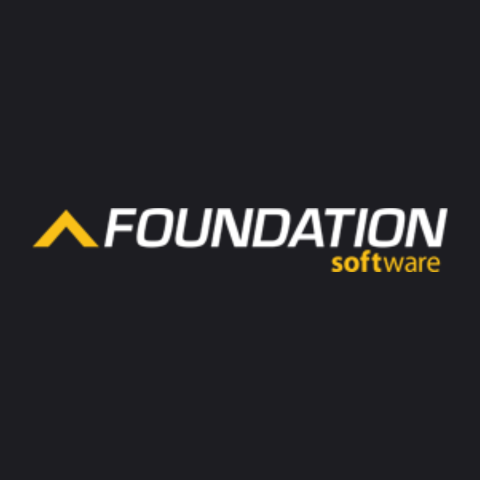
Foundation
Integrated Payroll
- Industry FocusConstruction-specific
- Integration CapabilitiesProject Management, Payroll
- User-FriendlinessComplex Features, Moderate Learning Curve
About Foundation
Foundation has been a cornerstone of the construction accounting industry since 1985. Fred Ode developed the original version of his construction accounting software, which has evolved significantly over the decades.
Their software is known for its user-centered approach, responsive support, and service, helping over 43,000 construction professionals manage and enhance their business operations effectively.
Foundation has continually embraced innovation, ensuring that its offerings keep pace with technological advancements while maintaining a strong focus on quality service and support.
Foundation includes a payroll and subcontracting module built-in to help construction companies manage their permanent and contractual staff.
Foundation Features
Automated tracking of tax liabilities and support for printing or e-filing 1099s.
Alerts for approaching-due or past-due accounts payable invoices, ensuring timely payments.
Flexible invoice payment options, allowing selections based on due dates, discounts, and holds.
Simplified accounts payable invoice entry with automatic error checking.
Custom report creation with DataGenie™ for tailored financial analysis and job costing.
CPA Audit and Review Software that provides a consolidated view of financials and reports for external CPAs.
Detailed vacation accrual and usage information available to employees through an intuitive eAccess dashboard.
Foundation Pros/Cons
Includes automated alerts to prevent budget overruns.
Instantly generates reports on project cash flows
Lacks updated features
Inconsistent time zone registration leads to inaccurate timecards.
Limited compatibility with some other software systems
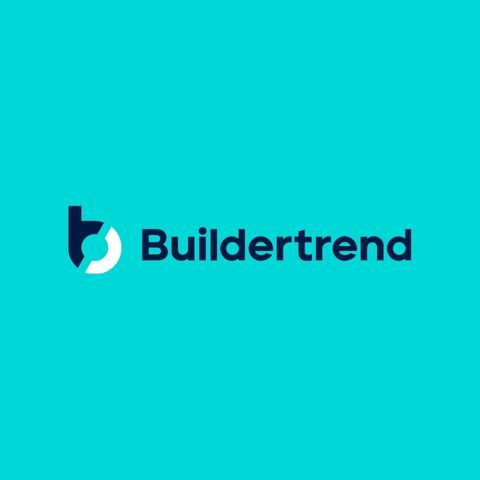
Buildertrend
Best to Manage Cash Flow and Budgets
- Industry FocusResidential Construction-Focused
- Integration CapabilitiesCRM, Accounting Tools
- User-FriendlinessBeginner-Friendly
About Buildertrend
With nearly two decades in the industry, Buildertrend’s mission is to bring order and efficiency to the construction process.
With over one million construction professionals served, over two million projects completed, and 1.5 million mobile app downloads across 100+ countries, Buildertrend is helping contractors maintain control and run their companies more effectively.
Founded in 2006 by Dan Houghton, Steve Dugger, and Jeff Dugger, the company began with a small team in Omaha, Nebraska. Despite the challenges of the Great Recession, the company expanded rapidly, growing by 80% in 2008 and venturing into the remodeling industry. By 2011, the company had begun building a strong global customer base, particularly in New Zealand and Australia.
Buildertrend Features
Integrates financial management with features like mobile banking and 1% cashback on company spend.
Utilizes field data to forecast critical costs and manage budget risks effectively.
Distributes individual virtual and physical cards to employees, eliminating shared company card issues.
Offers virtual and physical cards for employees with custom spending limits tailored to their roles.
Eliminates the need for manual check writing or delivery, facilitating immediate online fund deposits.
Keeps bid information connected and updated in real-time with other Buildertrend features.
Provides visibility into the financial health of every job, reducing end-of-year accounting stress.
Buildertrend Pros/Cons
Provides a digital wallet
Includes a checking account for managing company expenses and earning cashback rewards.
Enables quicker transactions with online payment options for clients and subcontractors.
Outdated interface
Not ideal for those who have no experience with the use of technology in construction.
Lacks autosave for tasks and daily logs

CMiC
For Small Builders and Contractors
- Industry FocusConstruction Financials Focused
- Integration CapabilitiesPayroll, HCM, Project Management
- User-FriendlinessModerate, Steep Learning Curve
About CMiC
Serving one-quarter of the construction firms on ENR’s Top 400 Contractors list, CMiC handles over $100 billion in construction revenue annually, making it the preferred choice for a wide range of construction firms. This includes general and specialty contractors, heavy/highway contractors, and project owners.
In North America, CMiC enjoys a 25% market share among the top 400 contractors, solidifying its position as a leading provider of construction software solutions.
The platform’s scalability and adaptability make it a long-term partner for contractors and small builders, offering flexible deployment options, including on-premise, private cloud, or multi-tenant cloud environments.
CMiC Features
Eliminates duplicate entries by automatically updating both general ledger and job costing.
Integrates all subcontractor activities into the workflow, making them an extension of the team.
Tracks fleet, compliance, and fixed assets while managing depreciation for resource planning.
Operates on a single database platform to enhance data integrity and accessibility.
Connects financial management with field operations for real-time financial visibility.
Streamlined employee self-service portal for efficient management of time and crew activities.
Enhanced payroll processing with automated tax filing and payroll deductions to ensure compliance and accuracy.
CMiC Pros/Cons
Easy to navigate for beginners
Constant updates on features
Centralizes control with a unified interface for easier system management and troubleshooting.
Limited custom reporting options
Long implementation process
Distributed settings management
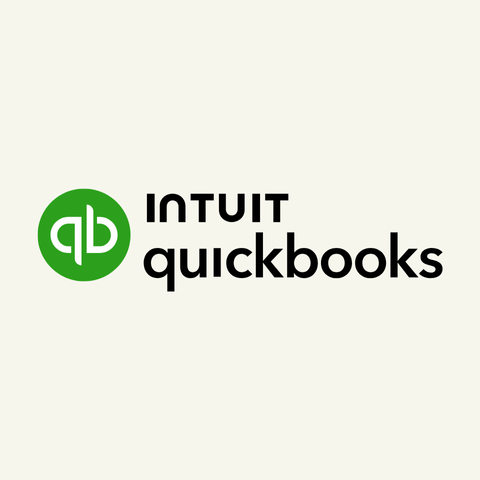
Intuit Quickbooks
Best for Value
- Industry FocusGeneral Business, Small Construction
- Integration Capabilities750+ Popular Business Apps
- User-FriendlinessBeginner-Friendly
About Quickbooks
Launched by Intuit, a leader in personal finance software, QuickBooks was created to meet the needs of small businesses that required an affordable and easy-to-use accounting tool.
QuickBooks serves over 15 million users worldwide, providing both desktop and cloud-based solutions that cater to the diverse needs of businesses. With continuous updates and the integration of mobile apps and cloud compatibility, the software offers the best value for small business accounting, offering tools to manage their finances with ease and confidence.
Quickbooks Features
Ability to attach plans, contracts, or photos directly to invoices for transaction documentation.
Batch invoicing capabilities in QuickBooks Online Advanced, increasing invoicing efficiency by up to 37%.
Tagging system for transactions to categorize and run detailed reports for enhanced financial insights.
Dedicated tracking for separate expenses such as equipment rentals and supplies to ensure accurate 1099 filing.
Unlimited, on-demand access to tax advice from TurboTax experts throughout the year.
Audit support with one-on-one guidance from trained tax professionals if audited.
Quickbooks Pros/Cons
Ideal for mid-sized companies
Connects with industry-specific apps and supports mobile payments
Simplifies tax-form preparation
Lacks bulk action capabilities for tasks such as changing transaction statuses
Limited customization by not allowing the removal of unnecessary menu items.
Limited integrations with Meta and Google.

FreshBooks
For Small Businesses
- Industry FocusSmall Businesses, Freelancers
- Integration CapabilitiesPayroll, CRM, Payment
- User-FriendlinessVery user-friendly
About FreshBooks
FreshBooks began with a simple yet frustrating mistake: in 2003, Mike McDerment, a small business owner running a design agency, accidentally saved over an invoice and lost hours of work. This frustrating experience inspired him to create a more efficient solution for managing invoices and finances, which eventually grew into a financial management tool used by millions today.
Founded in Toronto, Canada, this software was designed to meet the needs of freelancers, self-employed professionals, and small business owners who needed an easy-to-use tool to manage their finances without the complexity of traditional accounting software.
The platform has processed over $60 billion in invoices and saved its users an average of 192 hours annually. In addition to its intuitive design, FreshBooks is renowned for its award-winning customer support, having earned 11 Stevie Awards. Read more about this software in our FreshBooks review.
FreshBooks Features
Automatic mileage tracking for business trips, with hands-free log entry and history saving for tax claims.
Creation of customizable proposals within FreshBooks to outline project scopes and timelines, helping win new projects.
Automatic payment reminders to ensure timely payments and maintain steady cash flow.
Near-instant invoicing that allows for the creation and sending of professional-quality invoices in moments.
Integrated client reports that provide insights on revenue by client and other critical business metrics.
FreshBooks Pros/Cons
Assigns unique billing portal logins for each customer.
Manages multiple clients under one company with distinct usernames.
Provides customization options by allowing branding with colors and logo.
Restricts electronic payment options by only working with select banks, leaving others unable to process payments.
Excludes advanced accounting features such as inventory management and fixed asset tracking.
Limits access to advanced features by requiring higher-tier plans for essential tools, affecting lower-tier users.
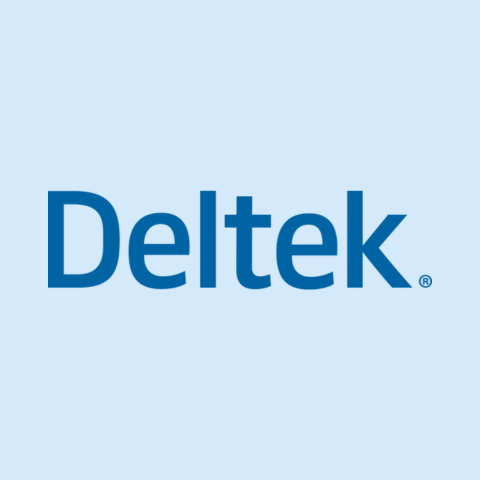
Deltek
Inbuilt Job Costing, Payroll and Project Management
- Industry FocusProject-Based Industries, Government Contracting
- Integration CapabilitiesVia API
- User-FriendlinessComplex Interface, Steep Learning Curve
About Deltek
Deltek has evolved from a visionary startup into a leading name in project-based business solutions, serving over 30,000 organizations worldwide.
Continuing to innovate, the company provides integrated solutions that include project intelligence, management, and collaboration tools designed to maximize productivity and profitability.
Their ongoing development of cutting-edge technologies addresses the evolving needs of its diverse clientele, ensuring that Deltek remains at the forefront of the industry, dedicated to powering project success and helping customers achieve their business goals.
Deltek Features
Integration of Work in Progress (WIP) report data to track job progress and grow bottom-line profits.
Strategic management of technician workloads and scheduling to optimize service operations and prevent idle time.
Mobile experience with capabilities to digitally convert handwritten notes on tablets and immediate invoicing with digital signatures.
Labor reporting from the field with GPS integration to ensure accuracy in tracking time, costs, and production units.
Customizable financial reporting capabilities with a simple drag-and-drop interface for arranging reports.
Advanced accounts payable management through intelligent character recognition (ICR) scanned invoice comparisons with purchase orders and subcontracts.
Progress billing capabilities, including AIA billing, to manage invoices while the job is active.
Detailed tracking of labor, material, subcontract, and equipment costs with configurable user access levels.
Deltek Pros/Cons
Manages non-local taxes efficiently with automatic updates
Builds custom reports using the Q Tools function
Streamlines processes by allowing customization of names to fit specific business needs
Generates large data logs consuming substantial server space
Requires extensive initial setup to configure the system for report generation
Lacks a simple application for chart of accounts and customizations, necessitating manual recreation for each project

Sage 300 Construction
Market Leader
- Industry FocusConstruction and Real Estate Focused
- Integration CapabilitiesDirectly with other Sage Products, 3rd party tools via API
- User-FriendlinessModerate, Steep Learning Curve
About Sage 300
Sage started as a small start-up in 1981 when founder David Goldman sought to automate the print estimating and basic accounting processes in his own business. Working with a team of Newcastle University students, they developed software that had potential benefits for other companies as well. Recognizing this opportunity, Goldman established Sage to market the software, setting the stage for what would become a global success story.
With millions of users in the UK, Ireland, mainland Europe, North America, South Africa, Australia, and Asia, Sage offers a wide range of solutions that manage diverse business functions.
Sage 300’s technology ensures that business builders can operate effectively whether in the cloud, on-premise, or a hybrid of both, providing the freedom to work with mobility and make informed decisions from anywhere in the world.
Sage 300 Features
Dynamic lease document management to maintain detailed oversight of property management and contractual terms.
Customizable customer portal for service requests and history tracking.
Prevent duplicate data entry by allowing technicians to input work order details directly in the field.
Systematically organize and store all versions of drawings, RFIs, invoices, lease agreements, and contracts.
All-in-one construction management with Sage 300CRE to streamline project delivery and enhance team connectivity.
Document control with Sage Paperless Construction, ensuring organized management and a clean audit trail.
Sage 300 Pros/Cons
Works with add-ins such as MyAssistant and Office Connector
1,400 prebuilt report formats included in the platform
Sage Business Care provides expert, professional assistance 24 hours a day
Correcting information or entries is difficult.
Complicates the process of assigning permissions as an administrator.
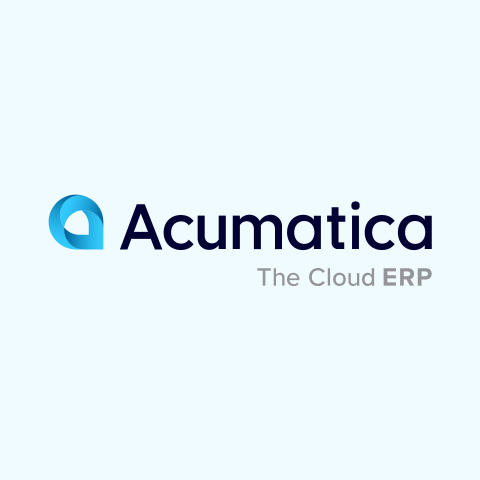
Acumatica
AI-powered Cloud ERP
- Industry FocusConstruction-Focused
- Integration CapabilitiesCRM, ERP Payment Tools
- User-FriendlinessModerate Learning Curve
About Acumatica
Founded in 2008, Acumatica has grown to support over 10,000 customers, tailoring its business management solutions to small and mid-sized companies. Their platform is designed with specific industry needs in mind, featuring intelligent workflows and leading usability standards that enable organizations to effectively manage risks and anticipate disruptions.
Owned by EQT Partners, a prominent global investment firm, Acumatica enjoys robust backing and a focus on sustainable growth. The company’s principles promote flexible deployment options, giving users the freedom to customize their experience to best suit their business needs.
Recognized by industry analysts, including Nucleus Research, for its practical capabilities, Acumatica is committed to refining technologies that help modern businesses succeed in a constantly changing market landscape.
Acumatica Features
Integrated project billing with flexible progress billing options to reduce project owner risk
Requests for Information (RFIs) system to manage change requests and track the status of each query.
AI-ML powered data processing
Integration with CFMA Benchmarker for financial performance comparison against industry peers.
Improved team collaboration through real-time access to project details, facilitating efficient task completion.
Joint check management integrated with purchase requisitions and inventory control for simplified project finance handling.
Streamlined document management with no per-user charges and role-based security access, fostering better collaboration.
Acumatica Pros/Cons
Enables faster deployment with public cloud models, reducing the need for infrastructure purchases and speeding up Cloud ERP system implementation.
Facilitates the addition of partners and suppliers, granting them access to specific tools for order tracking and data updates.
Uses system accounts for outgoing emails, leading to external contacts saving incorrect email addresses and resulting in lost communications
Experiences data import and export issues
Lacks an auto-save feature
Comparison of Construction Accounting Software
Below is a comparison of the features of the various construction accounting software.
Product Name | Starting price/month | Financial Reporting | Payroll Management | Job costing | Mobile access | Explore |
|---|---|---|---|---|---|---|
 Premier | $349 | ✅ | ✅ | ✅ | ✅ | |
 Procore | Custom | ✅ | ❌ | ❌ | ✅ | |
 Foundation | Custom | ❌ | ✅ | ✅ | ✅ | |
 Buildertrend | $199 | ❌ | ❌ | ✅ | ✅ | |
 CMiC | Custom | ✅ | ✅ | ✅ | ❌ | |
 Quickbooks | $17.50 | ✅ | ✅ | ✅ | ✅ | |
 Freshbooks | $7.60 | ✅ | ✅ | ✅ | ✅ | |
 Deltek | Custom | ✅ | ✅ | ✅ | ❌ | |
 Sage | Custom | ✅ | ✅ | ❌ | ✅ | |
 Acumatica | Custom | ❌ | ✅ | ✅ | ✅ |
What is construction accounting software?
A construction accounting software is a specialized tool for managing the financial needs of the construction industry. It helps track project costs, manage budgets, process payroll, handle invoices, and ensure compliance with industry regulations.
Learn these basic accounting terms to have a better understanding of construction accounting software, to know how it can help, and adapt to the needs of your company.
Features of construction accounting software
One of the main features of a construction accounting software is project management integration, which coordinates financial data with project timelines.
Budgeting and forecasting features also enable companies to plan and predict future financial needs, ensuring projects stay on schedule and within budget.
Job costing is crucial for tracking expenses related to specific projects, while payroll management simplifies paying employees, managing benefits, and ensuring compliance with labor legislation.
Construction accounting software also include accounts payable and receivable functions to ensure timely payments and accurate invoicing. Its financial reporting tools provide detailed insights, giving companies a clear view of their financial situation.
In today’s fast-paced industry, mobile access is increasingly important, allowing users to manage finances on the go and stay updated in real time.
Customer and vendor management tools help maintain strong relationships by efficiently organizing contact data and transaction history.
Using construction accounting software supports compliance with industry regulations through compliance and tax management tools, which help mitigate the risk of legal issues.
Document management capabilities enhance organization and efficiency by simplifying the storage and retrieval of crucial documents.
Real-time data and analytics offer instant access to essential financial information, facilitating swift decision-making. Bid management features streamline the creation and management of bids, thereby increasing the likelihood of securing projects.
What are the benefits of construction accounting software?
Below are the benefits of construction accounting software over general accounting software.
Improved financial management: With accurate job costing and enhanced budgeting and forecasting capabilities, the software enables precise tracking of project expenses and future financial planning. This, in turn, ensures that projects remain within budget and profitability is maximized.
Integration: the software’s ability to integrate with project management tools and automate repetitive tasks streamlines operations, reducing manual workload. This integration facilitates real-time updates, ensuring that all team members stay informed and coordinated.
Enhanced collaboration is a key benefit, as the software allows various stakeholders—including contractors, builders, and subcontractors—to access and update project information.
Regulatory compliance is simplified through a construction software, which helps businesses adhere to industry regulations and tax laws, thereby mitigating the risk of legal issues.
Cost savings are achieved through process automation and reduced manual errors, enhancing overall operational efficiency.
Better decision-making: The software supports better financial forecasting by providing detailed financial data and predictive analytics. This capability empowers teams in the construction business to make strategic decisions that enhance project outcomes and profitability. A better risk management is realized through comprehensive monitoring and analysis of financial and project data.
In essence, construction accounting software equips contractors and builders with the tools necessary to manage their finances more effectively and achieve greater success in their projects.
How to choose the best construction accounting software?
Job costing is a foundational element of construction accounting software, since it’s important to ensure that every dollar spent is accounted for. It’s essential to choose a solution that offers accurate job costing features, enabling you to track expenses down to specific projects or phases.
Equally important is project management integration. The software should easily connect with your project management tools, allowing for real-time data synchronization. This integration enhances coordination between financial and operational teams.
Consider how the software handles budget and completion analysis. Effective software should include robust budgeting tools for precise financial planning and monitoring, as well as completion analysis features to assess project progress against the budget. This helps you identify and address any financial discrepancies early on.
Change order tracking is another critical feature. The software of your choosing should efficiently manage modifications to project scopes. This capability helps maintain financial accuracy as project requirements evolve.
Additionally, evaluate the software’s integration capabilities. It should integrate with other essential systems, such as CRM, ERP, and payroll software, to create an efficient financial ecosystem. This integration streamlines processes and minimizes the need for manual data entry, improving overall efficiency.
Another vital aspect to consider is the quality of customer support. Reliable and responsive support is crucial for resolving issues and ensuring smooth software operation. Lastly, assess the overall costing of the software. Consider both the initial investment and ongoing costs to ensure that the solution fits within your budget.
Which accounting method is best for a construction company?
For construction companies, the percentage-of-completion method is often considered the most effective accounting approach.
This method allows the recognition of revenues and expenses in accordance with the progress of a project. This provides a more accurate reflection of financial performance over the life cycle of the project, specially of those that are long-term.
It is important to know these cost accounting terms so that you can use them to your advantage. With this, you can more effectively track revenues, manage budgets and forecast future profits. As a result, it helps to maintain a clear view of financial health as projects progress.
How does construction accounting software improve productivity?
The use of construction accounting software helps improve productivity by automating financial tasks such as invoicing, payroll and expense tracking, reducing manual data entry and errors.
It also provides access to real-time data for quick decision-making and integrates project management functions for tracking timelines and resources.
How do construction companies track expenses?
Construction companies can track expenditures through the budget and completion analysis method. With this method, they can compare actual costs incurred to budgeted amounts throughout the project life cycle.
An important thing to know is that by continuously monitoring and analyzing these financial metrics, it is possible to identify variances, manage costs more effectively and ensure that projects stay within budget. Companies may use these expense tracking software to automate the process.
Limitations of construction accounting software
A major limitation of construction accounting software is the complexity of the software itself. Advanced features and functionality can create a steep learning curve, requiring a lot of time and training to master. In addition, the cost of high-quality construction accounting software can be prohibitive, especially for smaller firms with limited budgets.
Some software solutions may not offer the flexibility to tailor the system to the unique requirements of the company. So, customization option is another major hurdle.
Integration issues are also a common concern. Difficulty integrating software with existing systems, such as CRM or ERP platforms, can lead to data silos and inefficiencies.
Finally, localization can pose challenges, especially for companies operating in multiple regions with different regulatory requirements. An accounting software for construction that lacks robust localization capabilities may struggle to adapt to different tax laws, currency formats and compliance rules.
Which construction management software offers communication platforms or CRM?
Buildertrend, JobNimbus and Procore offer inbuilt communication platforms. Acumatica includes CRM features as part of its construction management software. Sage Construction easily integrates with Sage CRM.
More on Accounting
-
 EditorUsha, the editor-in-chief of Geekflare, is a tech-savvy and experienced marketer with a Master’s degree in Computer Applications. She has over a decade of experience in the tech industry, starting as a software engineer and then moving into digital marketing and team management.
EditorUsha, the editor-in-chief of Geekflare, is a tech-savvy and experienced marketer with a Master’s degree in Computer Applications. She has over a decade of experience in the tech industry, starting as a software engineer and then moving into digital marketing and team management.


